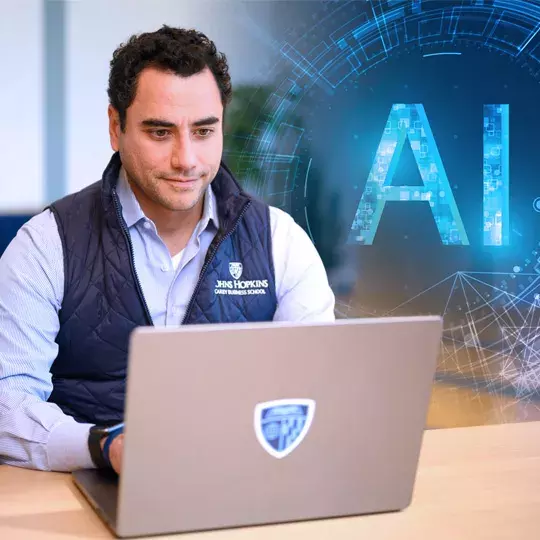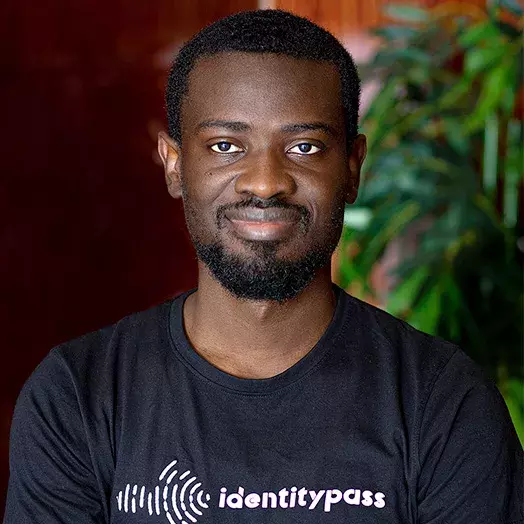The AI club offers students the opportunity to delve into the complexities of AI and machine learning, as well as network with industry professionals, alumni, and peers who share an interest in artificial intelligence.

Future-focused Carey students build for what’s next -- the AI revolution
You’ll see the faculty of the Johns Hopkins Carey Business School in the news regularly, discussing their AI research or weighing in on the latest AI developments. But those faculty members are also pouring into their students, who are making their own impressions in the field.
What to Read Next

student experience
Identity verification business makes “Most Disruptive MBA Startups” list by expanding global economic accessThe AI Student Club was formed in 2022 as awareness of the revolutionary potential of AI in business grew. Many, including President Biden in his Executive Order on the Safe, Secure, and Trustworthy Development and Use of Artificial Intelligence, say that the application of generative AI is the next stage of the Industrial Revolution. Machines with the ability to think, learn, self-replicate, and master many tasks that were once reserved for humans have world-changing possibilities. Being world-changers themselves, Carey students in the AI club are digging deeply into this future.
Daniel Irowa-OMoregie, a full-time student in the MBA/MPH program and co-president of the AI Student Club, says the club is also a conduit between academia and the industry.
“It brings real-world AI challenges and applications into the academic sphere, helping students grasp the current demands of the business world and the role of AI in meeting these demands,” he said.
Irowa-OMoregie offered the example of the club’s recent AI Hackathon, sponsored by Protenus. The theme of the Hackathon was “decoding nature's code," and it gave participants the chance to sharpen their AI skills, receive mentorship from industry professionals, and win prizes. MBA candidate and Dean’s Scholar James Po-Chiang Ting, who took second place, offered his gratitude to Irowa-OMoregie, the other club officers, and the event sponsors, saying the hackathon was exhilarating.
“Despite the limited time, the joy of using AI to solve real-world issues made it all worthwhile,” said Ting. “The experience not only sharpened my technical abilities but also highlighted the enormous potential of AI in determining the future of business.”
“[The club] brings real-world AI challenges and applications into the academic sphere, helping students grasp the current demands of the business world and the role of AI in meeting these demands.”
Daniel Irowa-OMoregie, MBA/MPH candidate and co-president of the AI Student Club
During the competition, participants tackled a real-world business challenge by leveraging the power of artificial intelligence. “My team's winning approach incorporated cutting-edge methodologies for analyzing and forecasting outcomes,” said Ting. “We dug into the data, using the power of AI to draw insights that may transform decision-making processes.”Not only does the AI club offer students the opportunity to delve into the complexities of AI and machine learning, but it is also an important networking hub for students to connect with industry professionals, alumni, and peers who share an interest in AI. These connections open doors for internships, job opportunities, and collaborative ventures.
With AI captivating attention worldwide, Carey Business School is leveraging its unparalleled reputation for innovation in the business of health, applying it to the possibilities of artificial intelligence, and making important societal impacts.
In his recent “Ten for One” statement University President Ron Daniels said, “We have access to more information than ever before in human history. And how we gather, analyze, and interpret this vast ocean of information will indelibly shape our collective future. Johns Hopkins is approaching this moment from a foundation of extraordinary assets and talents.”
Interested students can join the club through Hopkins Groups.